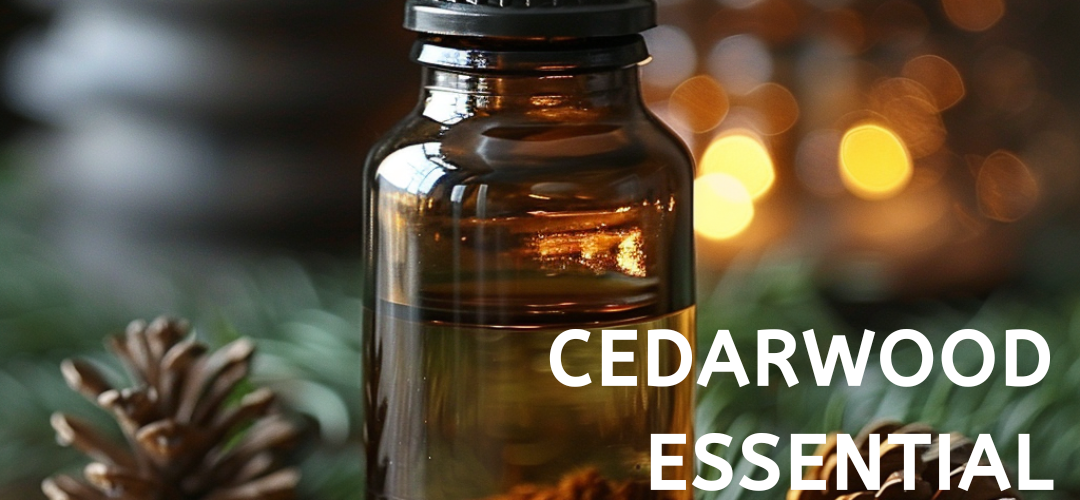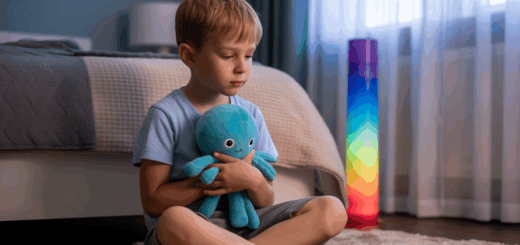Cedarwood Essential Oil: A Natural Approach to Managing Autism & ADHD Symptoms

- Introduction
- Section 1: Understanding Autism and ADHD
- Section 2: The Role of Essential Oils in Natural Therapy
- Section 3: Cedarwood Essential Oil – Benefits and Properties
- Section 4: How to Use Cedarwood Essential Oil
- Section 5: Other Beneficial Essential Oils
- Section 6: Real-life Success Stories
- Section 7: Precautions and Recommendations
- Conclusion
- Important Notice on the Use of Essential Oils:
Introduction
In recent years, the prevalence of Autism Spectrum Disorder (ASD) and Attention-Deficit/Hyperactivity Disorder (ADHD) has seen a notable increase, touching the lives of countless families worldwide. Autism, characterized by challenges with social skills, repetitive behaviors, speech, and nonverbal communication, along with ADHD, known for its symptoms of hyperactivity, impulsivity, and inattention, significantly affects daily living, learning, and social interactions. As society becomes more aware of these conditions, the quest for effective management strategies has also intensified.
Amidst this search, there’s a growing interest in natural remedies, with essential oils emerging as a promising option for symptom relief. These natural extracts, celebrated for their therapeutic properties, offer a gentler approach than traditional medications. Among these, Cedarwood Essential Oil stands out for its unique benefits. Known for its grounding, calming effects, Cedarwood Essential Oil is gaining attention as a potential aid in managing the symptoms associated with Autism and ADHD. Its natural constituents may help soothe anxiety, improve focus, and promote better sleep – all of which are common challenges for individuals with these conditions.
As we delve into the heart of this post, we will explore the multifaceted roles of Cedarwood Essential Oil. From its historical roots to modern-day application, scientific evidence supporting its benefits, and personal anecdotes from those who’ve found relief, we aim to offer a comprehensive guide on how this natural remedy can be part of a holistic approach to managing Autism and ADHD symptoms.
Section 1: Understanding Autism and ADHD
Overview of Autism and ADHD
Autism Spectrum Disorder (ASD) and Attention-Deficit/Hyperactivity Disorder (ADHD) are among the most common neurodevelopmental disorders affecting children and adults worldwide. Various symptoms, including difficulties with communication and social interactions, restricted interests, and repetitive behaviors, characterize ASD. ADHD manifests through symptoms of inattention, hyperactivity, and impulsivity, which can significantly impact an individual’s ability to function effectively in daily activities, academic performance, and social relationships.
Impacts on Daily Life
The symptoms of Autism and ADHD can vary widely among individuals but commonly lead to challenges in several areas of life. For those with ASD, social interactions can be particularly challenging, affecting relationships and educational opportunities. Similarly, individuals with ADHD may struggle with organizational tasks, time management, and maintaining focus, which can lead to frustrations in both academic and work environments.
The Importance of Holistic Approaches in Management Strategies
Given the complexity of Autism and ADHD, management strategies often require a multidimensional approach. Holistic management considers the entire individual, including physical, emotional, social, and environmental factors, rather than focusing solely on alleviating symptoms. This approach may include a combination of behavioral therapies, educational interventions, lifestyle and dietary adjustments, and, increasingly, natural remedies like essential oils. The goal is to support overall well-being, improve quality of life, and reduce the symptoms of Autism and ADHD in a more integrated, person-centered way.
Section 2: The Role of Essential Oils in Natural Therapy
A Brief History and How Essential Oils Work
Essential oils have been used for centuries, dating back to ancient civilizations like the Egyptians, Greeks, and Romans, who utilized these potent extracts for their therapeutic properties. Derived from plants through processes such as distillation or cold pressing, essential oils capture the plant’s essence, scent, and beneficial properties.
At the molecular level, essential oils interact with the body in various ways. When inhaled, the scent molecules travel directly to the brain, particularly impacting the limbic system, which plays a role in emotions, behaviors, sense of smell, and long-term memory. This direct pathway explains why certain scents can instantly evoke emotions or memories and how essential oils influence mood, stress levels, and mental focus.
The Connection to Neurological Conditions
The growing interest in essential oils for managing neurological conditions is partly due to their ability to influence the central nervous system without the side effects often associated with pharmaceutical treatments. For individuals with Autism and ADHD, essential oils like Cedarwood can offer a natural option to help manage symptoms such as anxiety, difficulty concentrating, and sleep disturbances.
Section 3: Cedarwood Essential Oil – Benefits and Properties
Origins and Properties
Cedarwood Essential Oil is derived from the wood of cedar trees through steam distillation. It has a warm, woody scent that is grounding and comforting. Chemically, it contains compounds such as cedrol, which may have sedative effects, and sesquiterpenes, which can help improve the oxygenation of brain cells, potentially improving focus and calmness.
Benefits for Autism and ADHD
For individuals with Autism and ADHD, Cedarwood Essential Oil’s properties can be particularly beneficial. Its calming effect can help reduce anxiety and promote relaxation, making navigating social situations and daily tasks easier. Additionally, the potential for improving brain oxygenation may enhance concentration and focus, addressing common challenges faced by those with ADHD.
Although scientific research on essential oils, including Cedarwood, is still emerging, anecdotal evidence and preliminary studies suggest positive effects on mood, cognitive function, and sleep quality. These benefits align with the holistic approach to managing Autism and ADHD, offering a complementary option alongside traditional therapies.
Section 4: How to Use Cedarwood Essential Oil
Safe Practices for Children and Adults
When considering the use of Cedarwood Essential Oil for managing symptoms of Autism and ADHD, it’s crucial to prioritize safety, especially for children. Essential oils are highly concentrated and should be used with care. Here are some guidelines to ensure safe usage:
- Dilution: Always dilute Cedarwood Essential Oil with a carrier oil (such as coconut, jojoba, or almond oil) before topical application. A general guideline is to use a dilution rate of 1-2% for adults and 0.5-1% for children. This means adding 1-2 drops of essential oil to a teaspoon of carrier oil for adults and halving that for children.
- Patch Test: Before widely using the oil, conduct a patch test to check for allergic reactions. Apply a small amount of the diluted oil to a skin patch and wait for 24 hours to see if there is any adverse reaction.
- Diffusion: Using a diffuser to disperse the oil into the air is safe for children and adults. Diffusing for 30-60 minutes is usually sufficient to experience the oil’s benefits without overwhelming the senses.
Different Methods of Application
- Topical Application: Apply the diluted oil to pulse points, the feet soles, or the neck’s back. For individuals with sensory sensitivities, starting with a small amount on the feet can be a less invasive way to introduce the oil.
- Diffusion: This method involves using an essential oil diffuser to spread the oil’s aroma throughout a room. It’s beneficial for creating a calming environment or improving focus during tasks and activities.
- Inhalation: Direct inhalation from the bottle or a cotton ball with a few drops of oil can offer immediate calming effects. This method is beneficial for managing acute stress or anxiety moments.
- Baths: Adding a few drops of diluted Cedarwood Essential Oil to a warm bath can provide a soothing and relaxing experience, ideal for preparing for bedtime or reducing stress.
Ensuring Benefits While Minimizing Risks
By following these guidelines, individuals with Autism and ADHD can safely explore the benefits of Cedarwood Essential Oil as part of their holistic management strategy. It’s also important to consult with a healthcare provider or a qualified aromatherapist before incorporating essential oils into any treatment plan, especially for children or those with specific health concerns.
Section 5: Other Beneficial Essential Oils
In addition to Cedarwood Essential Oil, several other essential oils have been identified for their potential benefits in managing Autism and ADHD symptoms. Each oil has unique properties that can address different aspects of these conditions.
- Lavender Essential Oil: Known for its calming and relaxing properties, Lavender Oil can be particularly beneficial for individuals experiencing anxiety, stress, and sleep disturbances. It can help improve sleep quality and promote a sense of calm.
- Vetiver Essential Oil: Vetiver is praised for its grounding effects. It has shown promise in improving concentration and reducing hyperactive behaviors. This makes it a valuable option for individuals with ADHD seeking to enhance their focus and reduce distractibility.
- Frankincense Essential Oil: Often used for its mood-stabilizing effects, it can support emotional well-being, reduce stress, and improve overall focus. Its soothing properties make it suitable for creating a tranquil environment conducive to learning and relaxation.
Combining Essential Oils for Enhanced Benefits
These oils can be used individually or in combination to create synergistic blends that maximize their therapeutic benefits. For example, a blend of Cedarwood, Lavender, and Vetiver oils can provide a comprehensive approach to managing anxiety, improving sleep, and enhancing focus.
When creating blends, it’s essential to maintain proper dilution ratios and test the blend for compatibility with the individual’s preferences and sensitivities. Consulting with a professional aromatherapist can also provide tailored recommendations based on specific needs and goals.
Section 6: Real-life Success Stories
Anecdotal evidence and case studies have highlighted the positive impact of Cedarwood Essential Oil on individuals with Autism and ADHD. For instance, a parent reported significant improvements in their child’s ability to calm down before bedtime after incorporating Cedarwood Essential Oil into their nightly routine. Another account mentions an adult with ADHD finding enhanced focus and reduced anxiety during work when diffusing Cedarwood Oil in their office.
- Calming Nightly Routine for an Autistic Child: Liam, an 8-year-old boy with autism, often experienced heightened sensory sensitivity and had difficulty settling down for the night. After consulting with his healthcare team, his parents introduced a calming nightly routine that included diffusing cedarwood essential oil in his room 30 minutes before bedtime. They noticed that the woodsy, grounding aroma helped create a soothing environment, making it easier for Liam to transition into sleep. Over time, Liam began associating the scent with relaxation and nighttime, aiding in a more consistent sleep schedule.
- Focus Aid for a Teenager with ADHD: Sarah, a 15-year-old with ADHD, found it challenging to maintain focus during homework sessions. Her mother, seeking a natural support method, decided to try using a personal inhaler with cedarwood essential oil during study times after reading about its potential benefits. Sarah reported that the scent helped her feel more grounded and less distracted by external stimuli, leading to more productive study sessions. Her family was pleased with the noticeable improvement in her ability to concentrate on tasks.
- Sensory Integration for a Child with Autism: Ethan, a 6-year-old boy with autism, was particularly sensitive to smells and often became overwhelmed by strong or unfamiliar scents. However, his occupational therapist introduced him to various essential oils in a controlled setting, including Cedarwood, which Ethan responded to positively. His parents began incorporating cedarwood essential oil into his sensory play activities, noting that its mild, grounding scent seemed to help him stay calm and more engaged during therapy sessions.
- Transition Support for an Adolescent with Autism: Mia, a 13-year-old with autism, struggled with transitions between activities, especially those involving leaving the house. Her therapist suggested incorporating familiar scents to create a sense of continuity and safety. Mia’s parents introduced a Cedarwood essential oil-scented bracelet that Mia could wear throughout the day. Cedarwood’s familiar and comforting scent helped Mia cope better with transitions, reducing her anxiety about changes in her routine.
- Enhancing Classroom Focus for a Child with ADHD: Alex, a 10-year-old with ADHD, often found it hard to stay focused in his classroom environment. In collaboration with Alex’s parents and healthcare provider, his teacher introduced a diffuser with cedarwood essential oil in a corner of the room. The teacher observed that Alex and other students seemed more settled and focused during lessons. Alex expressed that he liked the scent and felt it helped him concentrate on his work.
These stories, while individual, underscore the potential of Cedarwood Essential Oil as a complementary tool in the holistic management of Autism and ADHD symptoms. They offer hope and a starting point for others seeking natural remedies to support their or their loved ones’ well-being.
Section 7: Precautions and Recommendations
While the benefits of Cedarwood Essential Oil are promising, it’s essential to approach its use with caution, especially in children and individuals with sensitive health conditions. Here are crucial precautions and recommendations:
- Consultation with Healthcare Providers: Before introducing Cedarwood Essential Oil or any new treatment regimen, consulting with a healthcare provider is crucial to ensure it’s appropriate and safe for the individual’s specific health situation.
- Awareness of Potential Side Effects: While rare, essential oils can cause skin irritation and allergic reactions or interact with medications. Monitoring for any adverse reactions when starting to use the oil is necessary.
- Responsible Use: Adhering to recommended dilution rates, avoiding ingestion, and keeping the oils out of reach of children are all essential practices to ensure safety.
Conclusion
Cedarwood Essential Oil and other beneficial essential oils hold the potential as part of a holistic approach to managing Autism and ADHD symptoms. Its calming, grounding properties can offer support in areas of anxiety, focus, and sleep, which are common challenges for individuals with these conditions. While not a substitute for professional medical advice or treatment, Cedarwood Essential Oil can be a valuable addition to a comprehensive management strategy.
As we conclude, we encourage readers to explore the possibilities of essential oils further. Consult with professionals, consider personal anecdotes, and engage with the broader community seeking natural remedies for Autism and ADHD. The journey towards well-being is individual and unique, and natural remedies like Cedarwood Essential Oil offer another avenue to explore in the quest for improved health and quality of life.
We invite you to share your experiences, questions, or insights on using Cedarwood Essential Oil or other natural remedies for Autism and ADHD. Your stories can provide valuable support and inspiration to others navigating similar paths. Let’s continue the conversation and learn from each other.
Important Notice on the Use of Essential Oils:
Before introducing cedarwood essential oil or any other essential oils as a complementary approach to managing conditions such as autism and ADHD, consulting with a qualified healthcare professional is crucial. Essential oils are potent substances that can have varying effects on different individuals, especially in those with sensory sensitivities or other specific health considerations.
Healthcare professionals can provide personalized advice based on an individual’s medical history, current health status, and specific needs. This is particularly important for individuals with autism or ADHD, as they may have unique responses to sensory inputs, including scents. A healthcare provider can also guide the safe use of essential oils, including proper dilution rates, application methods, and potential interactions with medications or other treatments.
Remember, while essential oils may offer supportive benefits for some individuals, they should not replace conventional treatments prescribed by healthcare providers. Instead, they should be considered as a possible adjunctive therapy, used under the guidance and supervision of a professional to ensure safety and effectiveness.
Always prioritize safety and efficacy by seeking professional guidance before starting any new treatment approach.
Discover more from Living with Autism
Subscribe to get the latest posts sent to your email.


